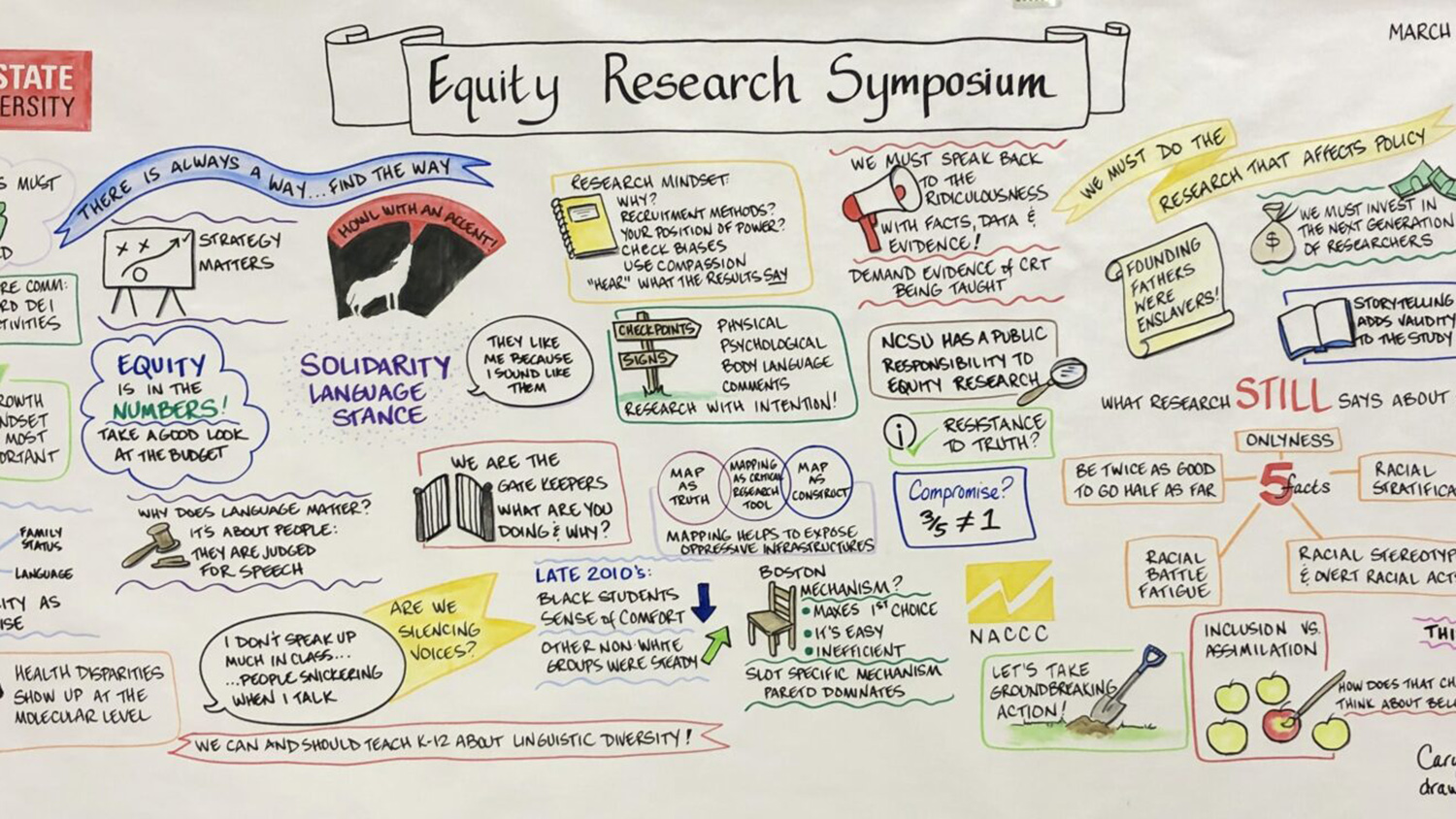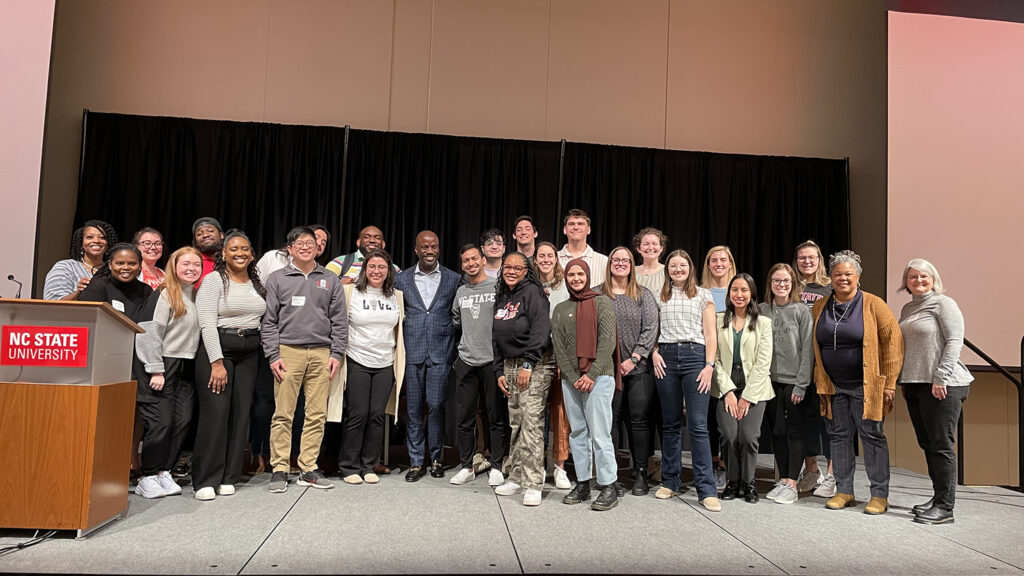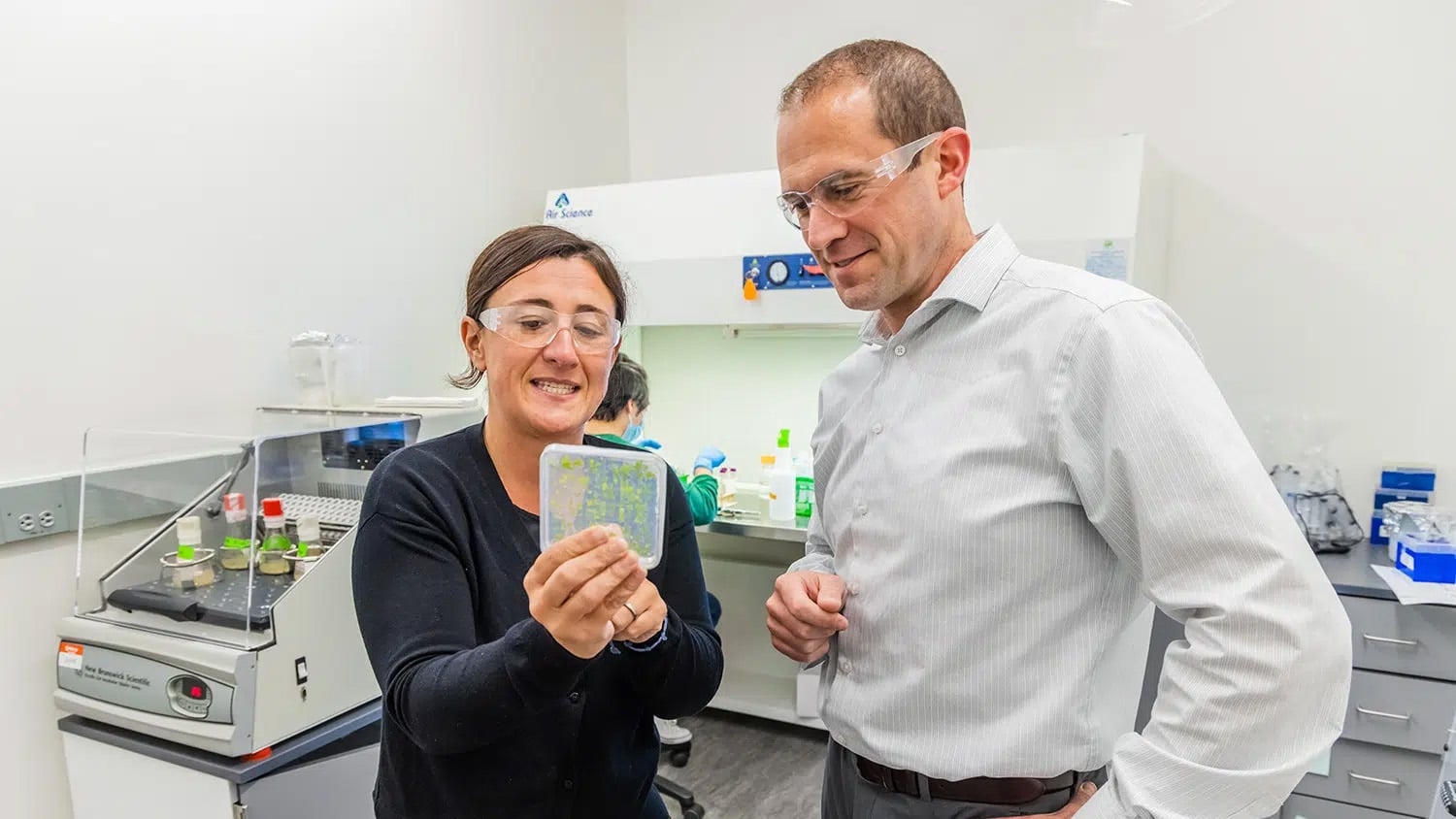Focusing on Equitable Research

Equitable research and research best practices create a stronger, more inclusive higher education environment where innovation can thrive. These themes took center stage at NC State’s second annual Equity Research Symposium, which brought the university community together to explore how equity informs research and showcase current research on equity.
The event built upon the success of the inaugural symposium, which centered on the question “what does equity mean to me?” and featured more than 80 presentations. This year, the symposium featured panel presentations, round table discussions, working groups/workshops, poster presentations and a keynote lecture.
“When you think about equity in higher education research, it is important to listen to and learn from multiple perspectives across various disciplines,” said Karen Hollebrands, associate dean for research and innovation in the College of Education and a co-organizer of the symposium. “This approach provides a broader picture of the work that you’re doing. It helps you to honor the time commitment, lived experiences and perspectives of those involved in your research. This is something we’ve worked to highlight through this symposium.”
The event was sponsored by deans of all 10 colleges, as well as the Graduate School and the Division of Academic and Student Affairs in collaboration with NC State’s Office of the Executive Vice Chancellor and Provost, Office for Institutional Equity and Diversity, Office of Research and Innovation, Office of University Interdisciplinary Programs and University Libraries.

“Interest in the NC State Equity Research Symposium continues to grow across campus and beyond: we had more presenters, participants, attendees and more students volunteers this year,” said Juliana Makuchi Nfah-Abbenyi, associate dean of diversity, equity, and inclusion in the College of Humanities and Social Sciences and a symposium coordinator. “Dr. Shaun Harper delivered a thought-provoking, informative, and timely keynote and later met with students, which he described as invigorating and the best part of his visit.”
Harper, one of the nation’s most highly respected racial equity experts, gave a keynote lecture on “What the Research Still Says About Racism and Racial Inequities.” His full address can be found here (requires Unity ID to view).
Attendees also had the opportunity to engage in various roundtable discussions and panels throughout the event. Roundtable discussions included “Black Research Symposium: Afro-Diasporic Worldbuilding and a Sustainable Futurity,” “We’re Just the Beginning of What is Possible: Findings from a Rural Grow-Your-Own Teacher Program,” “Training Diverse Future Leaders of Forestry, Natural Resources, and Environmental Sciences,” “Seeing Ourselves: Examining the Challenges of Social Identity Matching in STEM Experiences,” and “Mentoring Under-represented Students and Faculty: Ways to Build Informal Infrastructure for Equity and Organizational Justice at NC State.”
“Research in equity is intellectually and practically valuable, aligning well with NC State’s mission and its vision,” said Phil Westmoreland, a professor in the Department of Chemical and Biomolecular Engineering and organizer of the symposium’s opening plenary session. “At the same time, equity in the research process is important for all of us. That includes equitable treatment of our student, post-doc, and faculty colleagues. “
Outstanding Presentations
The symposium also included 19 poster presentations covering a wide variety of equity-related topics, featuring topics ranging from “Training Teacher Advocates: One Viable Solution for Addressing Autism Diagnosis Delays for Black Children” to “Remote Workplace Design for Neurodivergent Professionals,” “Extending Research and Professional Development Opportunities to High School Students of Color in North Carolina,” “Breaking the Language Barrier: The Importance of Bilingual Veterinarians in Providing Quality Care for Spanish-Speaking Pet Owners” and more.
DeVoshia Mason Martin, a Ph.D. student in teacher education and learning sciences with a concentration in educational equity, and lab coordinator for the FACES (Fostering Advocacy, Communication, Empowerment and Support) Parent Advocacy Program, presented “Training Teacher Advocates: One Viable Solution for Addressing Autism Diagnosis Delays for Black Children.” Her research focused on how autistic children from marginalized communities experience delays in diagnosis and/or misdiagnosis more than their white peers.
“Sadly, the impacts of these inequities are still felt by the families even after an appropriate autism diagnosis has been received. Witnessing these experiences as a psychology associate in Maryland and a dual-certified special education teacher here in North Carolina inspired my desire to not only research the topic, but to act,” said Martin. “As a teacher and exceptional children chair, I trained other educators about autism and recognizing that its symptoms may present differently from person to person. Currently, as a researcher, I am a member of the FACES lab directed by Dr. Jamie Pearson. FACES seeks to support Black families raising autistic children by acting upon its acronym. I aspire to turn my research into action by training educators about autism, its history and support for autistic students from marginalized communities.”
Her research in action will hopefully aid the special education process for autistic students from marginalized communities. If more teachers are well informed about autism, it may lead to them being able to better assist with recognizing autism. Martin added, “Especially when the educators receive the teacher report forms from the school psychologist who is conducting the eligibility testing for special education services. With an appropriate and timely diagnosis, autistic children from marginalized communities can receive the support and treatment they need to thrive in their learning environment and beyond.”
Kelsey Jenkins, a M.Ed. student in higher education administration, presented on “Transgender Student’s Mental Health Challenges and Their Experiences at Public University Health Services.” Her research focused on the mental health of transgender students in higher educational institutions, which evolved from her being a member of the queer community with mental health issues. “I noticed that within the queer community and within higher education, that transgender and non-binary voices are often silenced. Many individuals within academia don’t understand gender, and instead of opening the conversation, they shut it down because they are uncomfortable.”
Jenkins added that her research will contribute to a more equitable learning environment by providing the greater academic community with resources to meet the needs of transgender and non-binary students. “Each individual I spoke with at the symposium had incredible insight on ways to improve my research and ways in which my research impacted their view on transgender student experiences. It was a wonderful event that allowed the presenters to meet fellow equity researchers from the greater NC State community.”
From the symposium, four working groups were launched: “The Space Between Impact and Intent: Doing Equity Research at NC State”; “Creating safe and inclusive spaces for students in the lab and field”; “What radical possibility lies in an environmental justice graduate certificate?”; and “Decolonizing the Curriculum: Considerations and Possibilities”. These working groups will pursue equity research challenges in the gap year leading up to the next Equity Research Symposium in 2025.
“We need to press further with engaging NC State’s research on equity with the interests of NC State researchers whose subjects of study have nothing to do with equity as a topic,” said Westmoreland. “Understanding equity should be as important to microbiologists, astronomers, poultry scientists, and scholars in medieval history as it is to equity researchers, based on our all having the common responsibility of ensuring equity in research.”
This post was originally published in Provost's Office News.


